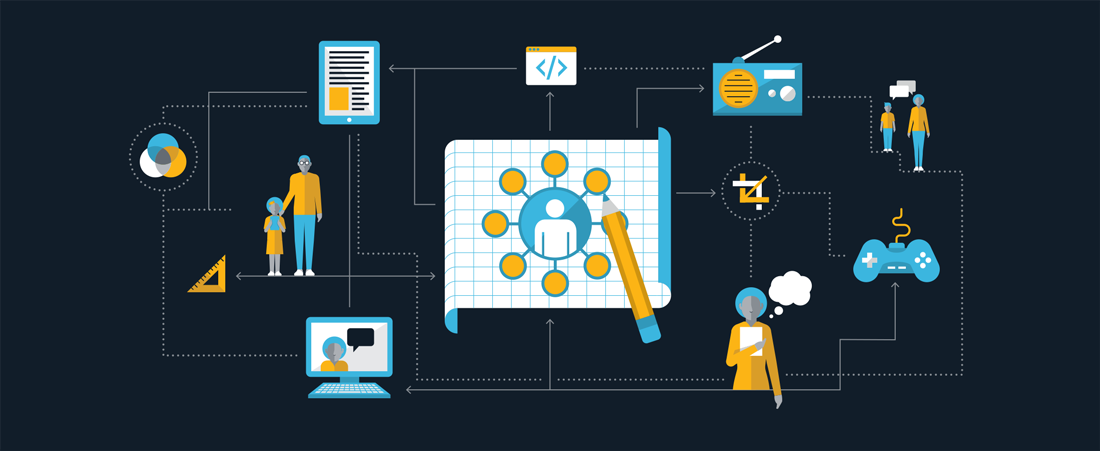
EDC’s collaborative process brings together scientists, researchers, educators, creative artists, media and technology specialists, and intended users—from young children to the elderly—to design, test, refine, and disseminate high-quality curricula, trainings, interventions, and other resources.
We create professional development and continuing education programs for busy practitioners, open-source online courses that reach hundreds of thousands of budding entrepreneurs around the world, and digital tools and applications that promote basic literacy and health.
Our work demonstrates that the best learning integrates knowledge and experience to empower individuals with critical skills and to achieve sustainable improvements in services and systems.
Learn about EDC’s work to strengthen early childhood interventions with Continuous Quality Improvement.
Resources
The proliferation of new technologies is changing the way we live, learn, and work. This white paper examines the complex and interconnected challenges related to workforce development, economics, education, equity, and ethics that our society must address to ensure our workforce is future-ready.
The Learning Generation Initiative strategy is a comprehensive road map that outlines our vision and strategic initiatives.
Math for All is a multimedia mathematics professional development resource for general and special education teachers.
This cost analysis study of the Akazi Kanoze 2 work readiness program in Rwanda was carried out from October 2015 to October 2017.
This annotated bibliography features a “starter set” of key research reports, practice briefs, policy papers, and tools to inform efforts to strengthen elementary science in schools and communities.
EDC’s media literacy toolbox includes activities, handouts, and curricular resources to support media literacy education in a variety of settings—classroom or afterschool program, low-tech or high-tech, children or teens.
This report summarizes the results of the Time to Learn project in Zambia, which was funded by the U.S.
The Children’s Safety Network (CSN) is a national resource center for the prevention of childhood injuries and violence.
This white paper draws upon the results of a survey of 850 career and technical education (CTE) educators nationwide, 11 interviews with CTE state leaders, and recent literature to provide a panora
This presentation describes the innovative strategies, accomplishments, and lessons learned of the Child Safety Collaborative Innovation and Improvement Network at EDC.